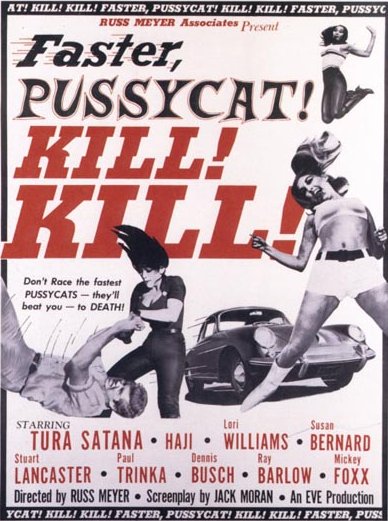The Book Babes’ latest column not only acts as if none of last year’s comparisons between comatose newspaper coverage and the galvanizing eclat of literary blogs ever happened, but suggests that the Book Babes and the illustrious Mr. Sarvas are now in cahoots. While we’re certainly pleased to see the Book Babes begin to understand the influence of blogs (and Mr. Sarvas’ careful ruse), we remain perplexed over the Poynter Institute’s continued encouragement of the Book Babes’ naivete.
“From a blogger’s perspective, old media feel too old-fashioned, too corporate, too confined by non-literary objectives and philosophies to meet the needs of today’s reader.” — There’s an assumption here that “today’s reader” (and, for that matter, the feverish lit blogger) is either (a) some unemployed slacker shut-in who only emerges from his home at the thwack of an Amazon package hitting his door or (b) some rapturous latte-swigging casual reader who bases her reading decisions exclusively on review coverage. What the Book Babes continue to misunderstand is that newspapers fail to capture word-of-mouth, or the free-spirited conversation found on lit blogs — itself an extension of passionate bookstore patter. It’s not a matter of being “old-fashioned.” It’s a matter of being connected with the prime pulse that drives today’s readers, of generating excitement, and getting people reading and talking about books.
It’s not about things like the Virtual Book Tour, which, while interesting in nature (particularly through George Kelly’s interview with Danyel Smith), is nothing less than an accelerated marketing gimmick modified for the information age. It’s not about selling books or walking on eggshells. It’s about reading books, assessing them constructively, finding out what literature means today, and simply giving a damn. If that means tipping over a few sacred cows (whether Sam Tanenhaus, Leon Wieseltier, Dale Peck, Dave Eggers, or the antiseptic domesticities of Margo & Ellen) in the process, then it’s the inevitable price of caring enough to express the very best (ideally, sans Hallmark card).
“It’s way premature to say that literary blogs have supplanted the established media.” No, Ellen, to respond in your valley girl vernacular: Way. Literary blogs offer the bustling crop that the current establishment would turn into fallow over a five-martini lunch. The fact is that, outside of appealing to the suburban mom who would spend her spare time worshipping the mediocrity of Anita Diamat, established media conduits take no chances and are more concerned with catering to plummeting attention spans than fostering literacy or letting people in on the secret that books are pretty kickass. It was established media in the form of The Telegraph that declared David Mitchell’s Cloud Atlas “unreadable,” while the online arenas thrived, discussing and citing the book a mere month after its American publication. How you like them apples?
It would be refreshing to see the Book Babes, instead of aping established media, take a few chances themselves. Perhaps it might set an example for the bloated bovine nuzzling in the neglected pasture.
[UPDATE: Mark has responded to the Book Babes’ questions at Ober Dicta, his other blog.]
[FURTHER UPDATE: Galleycat weighs in, with an accurate description for those new to the BB controversy: “In 1962, two girls with very different personalities met at summer camp and bonded over Nancy Drew and simultaneous first periods. Since then, they’ve been fiercely loyal penpals, publishing their exchanges about books at Poynter Online, and saving their more personal exchanges for an epistolary Bridges of Madison County-type debut.”]
